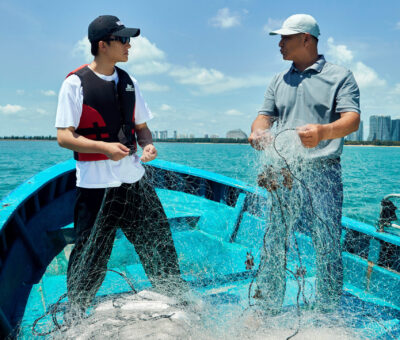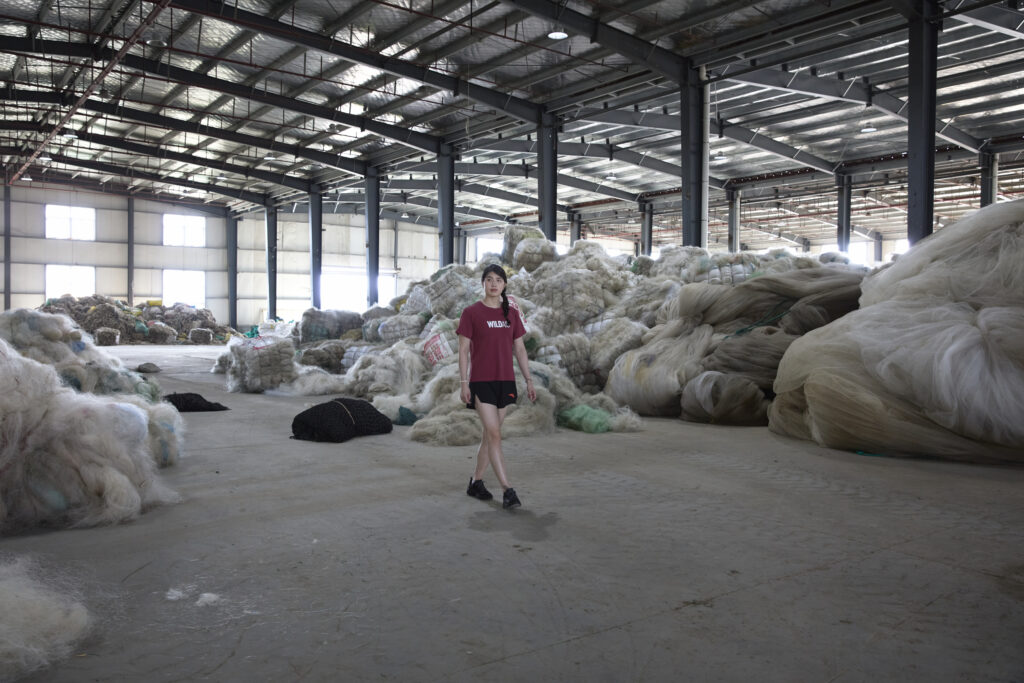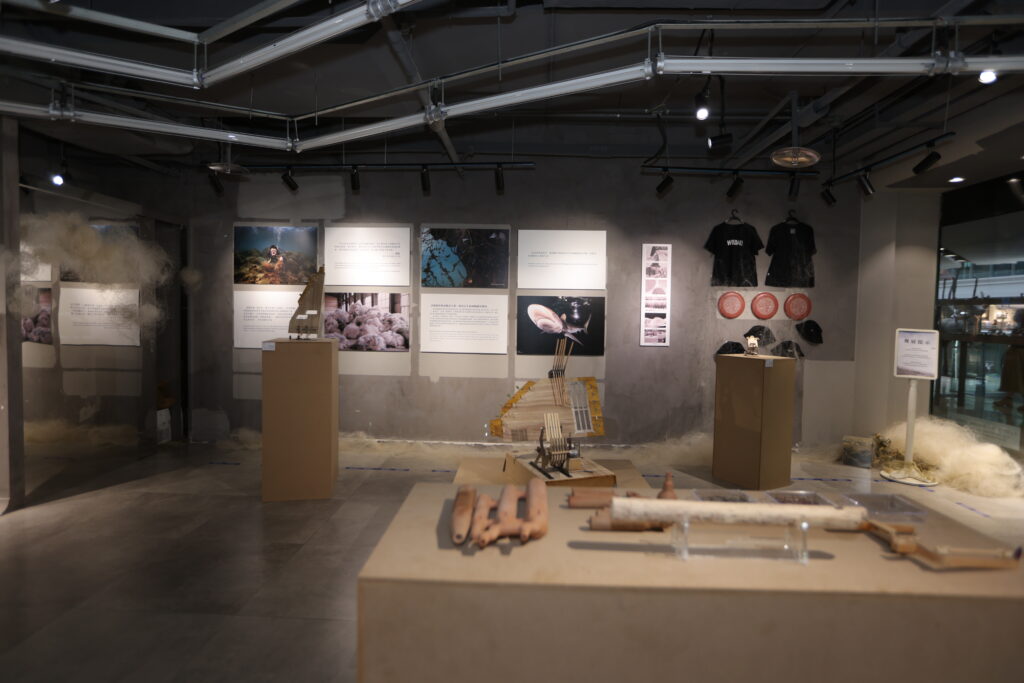
WildAid recently held a public event in Beijing to launch its upcoming docuseries, “No Net Left Behind,” which dives deep into the environmental crisis of abandoned, lost, or discarded fishing gear (ALDFG) and its toll on marine life. The series, produced in collaboration with Condé Nast Traveler and Youku, shines a spotlight on a lesser-known polluter of the ocean: “ghost nets” — abandoned fishing nets that float undetected and entrap marine animals in their path.
Released on Youku in China on October 24th and globally on YouTube on November 13th, “No Net Left Behind” features WildAid ambassador and actor Huang Xuan and ocean advocate and Olympian Zhang Yufei, who explore the crisis firsthand and showcase how individuals and communities are leading efforts to remove ghost nets and recycle abandoned fishing gear.
Powerful Storytelling to Inspire Marine Conservation
According to the United Nations Environment Programme (UNEP) and the Food and Agriculture Organization (FAO), ALDFG makes up around 10% of all marine debris. These ghost nets drift through the ocean, trapping marine animals like turtles, dolphins, and fish, often leading to fatal entanglements.
As part of WildAid’s mission, “No Net Left Behind” seeks to mobilize the public to address marine conservation challenges by highlighting ghost nets’ severe impact on biodiversity and local economies. WildAid China Chief Representative Yu Chong spoke to the importance of involving the public: “Systematically addressing the problem of ALDFG requires everyone’s involvement, from fishermen bringing back damaged nets to businesses recycling fishing nets into new products. This is a win-win movement that benefits both marine life and industries alike. We hope the docuseries empowers individuals to become part of the solution.”
Through vivid storytelling and captivating visuals, the docuseries presents the ALDFG issue from multiple angles, each with a powerful call to action. Huang Xuan, a trained diver, participates in a retrieval mission in Wanning, Hainan, and observes firsthand how ghost nets are painstakingly removed from the ocean. His journey highlights both the dedication required to tackle the ghost net issue and the systemic change needed to address the root causes. “This challenging experience made me realize that although manual retrieval is the most direct solution to ghost nets, it’s difficult and costly, making large-scale implementation impractical,” he noted. “The only way to fundamentally solve the problem is to establish a comprehensive recycling system that minimizes the chances of abandoned gear entering the ocean.
Looking at the issue from a different perspective, Zhang Yufei visits a recycling plant in Lianyungang, Jiangsu, to witness how these ghost nets are transformed from waste into resources, offering hope and new possibilities for sustainable living. “I see more and more people joining the efforts to recycle and repurpose ALDFG,” said Yufei. “With everyone’s efforts, these nets, which once threatened marine life, are now being reborn to better serve human life. This gives me great hope for the future of our oceans.”


Collaboration for a Cleaner Ocean
At the launch event, WildAid formalized its commitment to ocean conservation by signing a memorandum with the China Fishing Vessel, Fishing Machinery, and Fishing Gear Industry Association. Together, they pledged to support a decade-long plan that aims to reduce ghost nets in China’s coastal waters by 50% and abandoned fishing gear by 80%. Additionally, they launched the “No Nets Left Behind Partnership Program,” inviting environmental groups, NGOs, corporations, and individuals to join forces in tackling marine pollution.
With partnerships spanning across organizations like Condé Nast Traveler, Narwhal Ocean Research Center, and PADI, the program seeks to facilitate resource-sharing, develop innovative recycling methods, and promote sustainable solutions for ALDFG. By gathering such a broad coalition, WildAid aims to transform “No Nets Left Behind” from a docuseries into a movement, sparking action and awareness around the globe.
Art as Advocacy
Furthering the series’ impact, WildAid collaborated with Central Academy of Fine Arts PhD student Wang He to create art installations using recovered ghost nets. These artworks serve as a powerful visual statement, urging viewers to reflect on the widespread damage caused by ghost nets. Displayed at Parkview Green Beijing from October 17 to November 10, the exhibition was open to the public for free, inviting all to engage with the issue on a deeper level.


Broadening the Reach of Marine Conservation
By making ghost nets the focal point of the story, “No Net Left Behind” aims to empower audiences to rethink their roles in marine conservation and join the movement to protect our oceans. With the combined efforts of dedicated individuals, innovative collaborations, and a committed viewing audience, the docuseries offers a hopeful vision for a sustainable and vibrant ocean ecosystem.
Watch “No Net Left Behind” on YouTube.
Stay in touch and get the latest WildAid updates.
SIGN UPAbout WildAid
WildAid is a non-profit organization with a mission to protect wildlife from illegal trade and other imminent threats. While most wildlife conservation groups focus on protecting animals from poaching, WildAid primarily works to reduce global consumption of wildlife products such as elephant ivory, rhino horn and shark fin soup. With an unrivaled portfolio of celebrity ambassadors and a global network of media partners, WildAid leverages more than $308 million in annual pro-bono media support with a simple message: When the Buying Stops, the Killing Can Too.
Journalists on deadline may email communications@wildaid.org